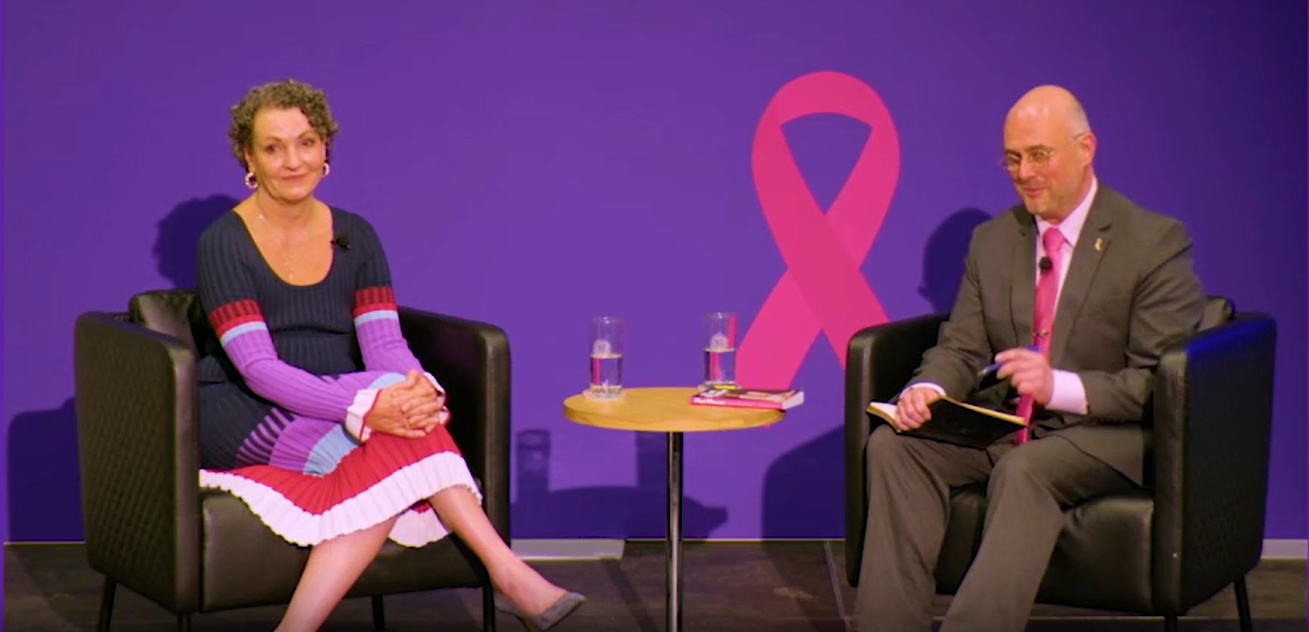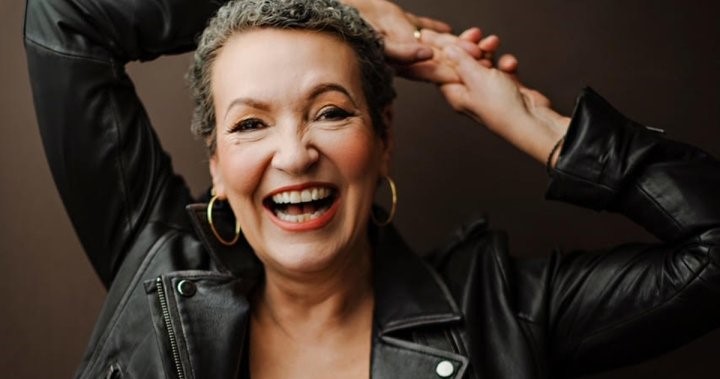By Dr. Ilya Gipp, MD, PhD, Oncology Clinical Leader, GE HealthCare
Imagine a world where artificial intelligence lightens the burden for cancer patients and eases the hearts of their loved ones! This is why we strive for technology to be more patient-focused.
I’d like to talk about cancer care as patient care. While advancements in technology have led to significant progress in oncology, these improvements can sometimes be unclear to patients. Cancer treatments are administered by healthcare professionals using sophisticated equipment, which can appear intimidating. Even though these innovations are undoubtedly important for patients, and let them live healthier lives, the question remains: can we do more?
I recently met a remarkable woman, Ellyn Winters-Robinson. Ellyn is a marketing executive, author, and innovator, who bravely fought and defeated breast cancer. My encounter with Ellyn was unique. I initially stumbled upon a new conversational AI tool called AskEllyn.ai, which I discovered was trained on Ellyn’s cancer journey. I was so fascinated by the tool that I couldn't stop myself and ended up spending over an hour "talking" with it.
The "real" Ellyn resides in the Toronto area in Canada and was diagnosed with breast cancer in March 2022. After undergoing surgery, radiation, and chemotherapy, she celebrated victory over cancer in November that year.
"When you are diagnosed, it's absolutely shattering," Ellyn shared with me. "I had never felt such overwhelming anxiety before." What she wanted, she said, is someone to hold her hand. She expressed a desire to not get promises that everything would turn out okay, but instead for someone to simply be there to offer her support.
I can relate to that sentiment. My mother was diagnosed with breast cancer when I was 10, and what helped her through, most importantly, was becoming friends and talking to another woman who was also battling breast cancer.
Ellyn aimed to share her journey with others impacted by cancer and began writing a book, "Flat Please, Hold the Shame," even before completing her treatment. Through this book, she became the patient advocate she had hoped for during her challenging months, offering guidance to women as they move through the stages of suspicion, detection, diagnosis, treatment, follow-up, and survivorship.
Books are a fantastic way to share knowledge and experiences, but are they the best way to meet emotional needs and provide support to readers?
People are more eager to learn when training addresses an immediate problem and focuses on solving it. In the past, we lacked tools to implement these concepts, especially in the context of education, communication, and engagement with cancer patients. However, more recently, things have changed significantly.
The swift advancement of AI, particularly large-language models, enable tools like AskEllyn to take an even bigger leap and help patients. Drawing on Ellyn’s battle with cancer as described in her book, AskEllyn puts the patient in control and provides useful answers to patients and their loved ones in a most empathetic way.
Ellyn shared with me,
AskEllyn was launched at the end of October 2023, and the immediate public reaction showed the demand for this empathetic technological approach. This kind of technology enhances patient well-being by satisfying their emotional needs. For care providers, these innovations also aid in communicating with patients, building trust, and ultimately improving outcomes.
I spent hours talking to the tool asking questions in various roles — as a physician, a patient, a child — and was impressed by the nuanced responses that adapt to the user’s level of understanding. I also explored its multilingual capabilities as well as its ability to respond in the form of a poem. Not only does it speak many languages, but it can also serve patients who come from a culture where they cannot confide in family or friends about their disease. It also remarkably simplifies its responses to be just one level simpler than the question asked. This means it can adapt to the user's level of understanding, ensuring the information isn't too complex, even for children.
Innovations in healthcare, powered by artificial intelligence, have the potential to bridge many gaps in medical treatment. Research indicates that empathy plays a crucial role in enhancing clinical outcomes. When patients sense empathy from their healthcare team, other patients, and their loved ones, they tend to be more cooperative, follow instructions more closely, and show a better response to treatment.
However, showing empathy can be a challenge for some physicians. We are primarily selected for our ability to master the technical aspects of medicine. When dealing with a woman who has breast cancer and a good prognosis, we might overlook her anxieties and concerns. These may be issues she's too embarrassed to mention during her appointment, or ones that clinicians are not specifically trained to address.
In contrast, AI has proven remarkably adept at this; a study published in 2023 in the Journal of the American Medical Association evaluated and compared patient responses given by doctors and conversational AI. Less than 5% of the doctors' responses were perceived by patients as "empathetic" or "very empathetic," while this number soared to 45% for responses from AI. At the same time, besides empathy, experts also praised the AI's advice for its accuracy.
A technology like AskEllyn offers the empathetic experience of one patient talking to another, sharing advice from someone who has navigated similar challenges and can impart valuable insights from their journey. It also assists family members of cancer patients, addressing their difficult questions and emotional hurdles.
There will be a future where conversational AI and similar technologies become crucial for healthcare teams, helping guide and support patients alongside clinicians who carry out diagnostic and treatment tasks. Applications such as this one could expand to cover more types of cancer, and I'm eager to see a future where AI-powered chatbots are helping with tasks like scheduling appointments with appropriate doctors and drafting emails based on conversations with patients. Chatbots also could help patients to better understand their test results or available therapy options.
To watch a replay of my live fireside chat with Ellyn Winters-Robinson, please click here.


